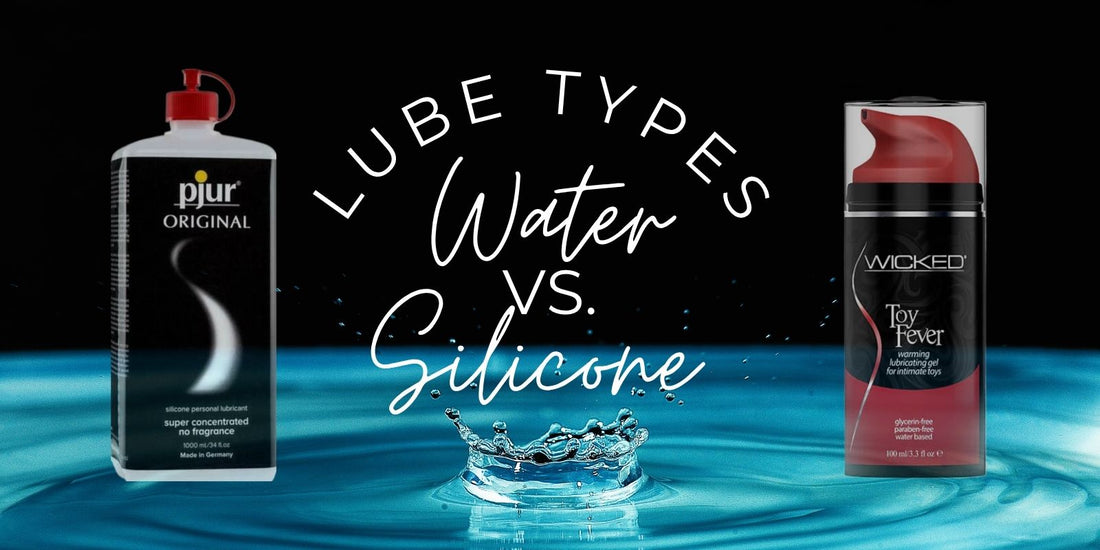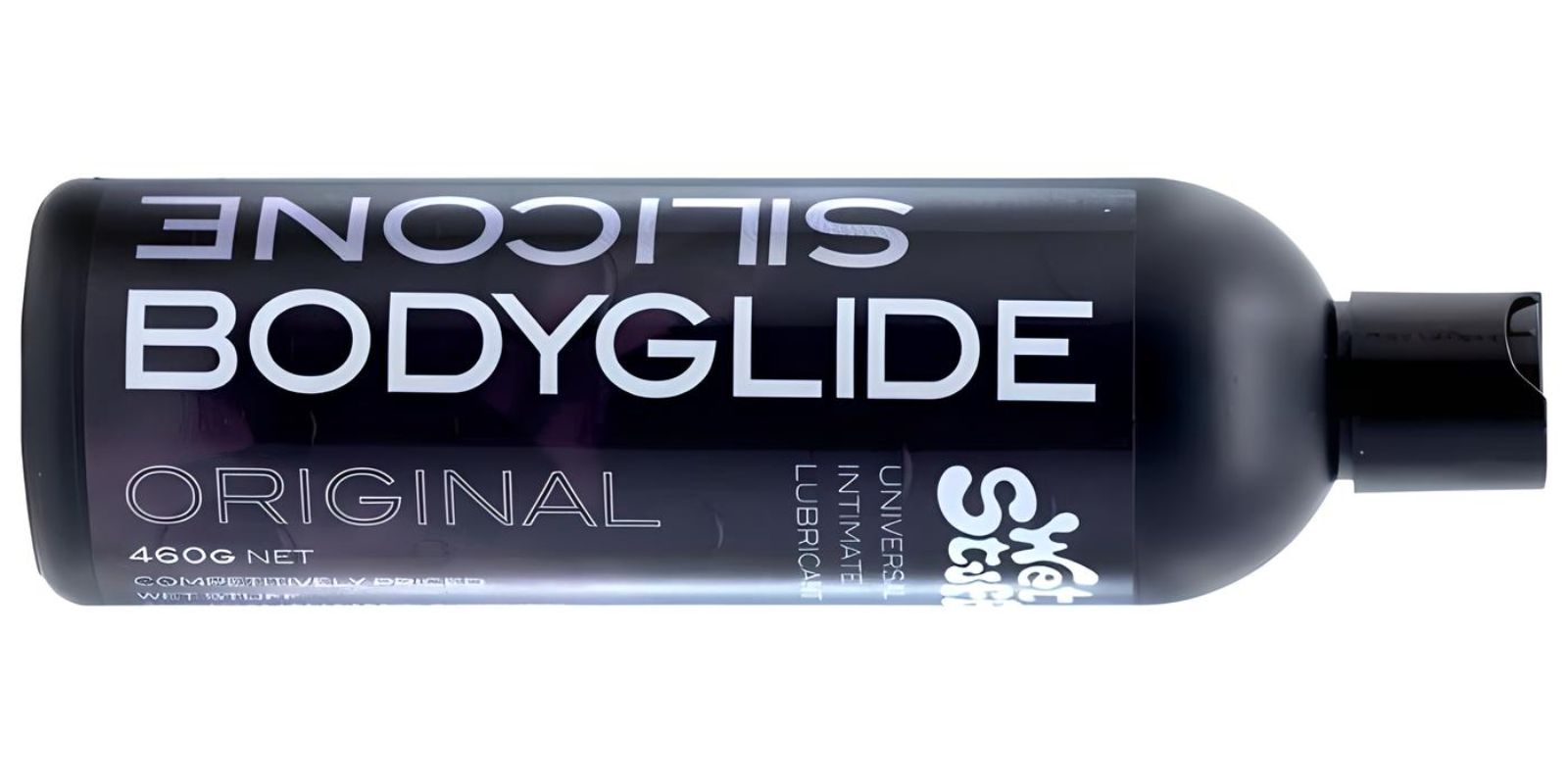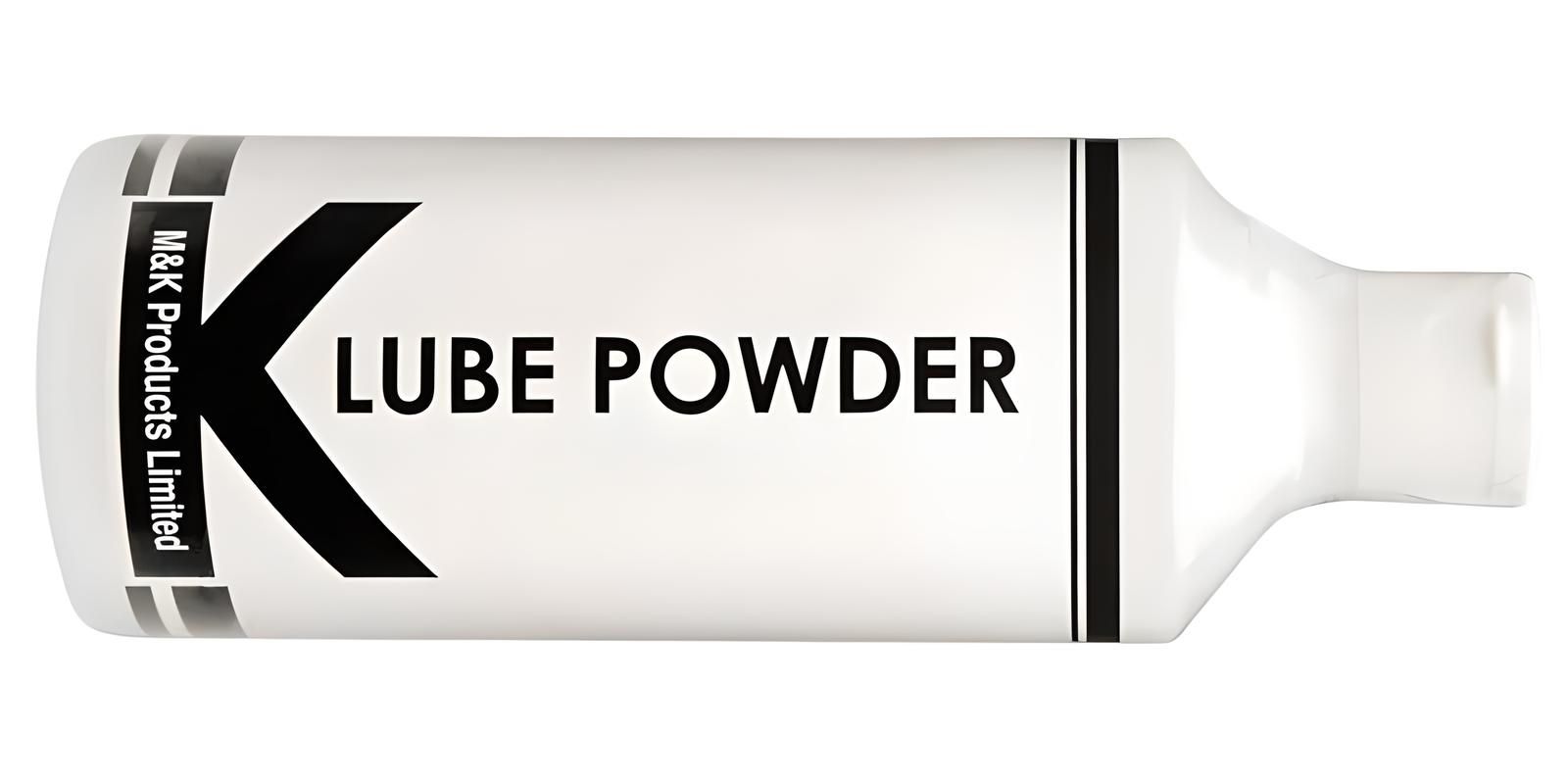
Water Vs. Silicone Lube: Advice To Find What Works Best
Share
How to Choose Smart Between Water vs. Silicone Lube
When the mood strikes, the right types of lube can make everything smoother—literally and figuratively. The Water vs. Silicone Lube debate isn’t just about texture. It’s about choosing what works best for the moment you’re in. If you’ve stood in front of the shelf debating between two bottles, you’re definitely not the only one. Knowing how each type behaves can help you feel more comfortable and confident in your choice.
Each lube has a role to play depending on how long you plan to go, what kind of play you’re into, and what you’re pairing it with. What feels great with a silicone toy might not work in the shower. In this article, we’ll guide you through what each type offers and when it really counts. Whether you’re playing solo, with a partner, or adding toys to the mix, a little insight goes a long way.
By the time you finish reading, you’ll have a clear understanding of how to use both water based and silicone lubes to your advantage. The conversation around Water vs. Silicone Lube is more practical than it sounds—and we’ll show you why.
Why Water-Based Lube Still Holds Its Own
Water-based lubricants are a go-to for many because they’re simple, clean, and adaptable. Their light, natural feel makes them comfortable for all kinds of intimacy. Whether you’re going solo, playing with a partner, or grabbing your favourite toy, this type of lube often delivers without fuss. And since it’s mostly water, it rinses off easily without leaving residue behind.
One of its biggest perks is toy safety. Water-based lubes are safe to use with any material, including silicone, metal, and glass. That makes them especially useful if your toy collection is varied. They also work well with all types of condoms, so you won’t have to double-check before getting started. If you’re sensitive to additives, look for versions that skip glycerin and parabens.
The only trade-off is that water-based options might need reapplying during longer sessions. Because the lube is absorbed by the skin or evaporates, you may notice it drying out a bit quicker than silicone varieties. A splash of water or a fresh pump can bring it back without interrupting the mood.
In any comparison involving Water vs. Silicone Lube, the water-based option stands out for being flexible, beginner-friendly, and easy to clean—qualities that make it a great everyday staple.
Where Silicone Lube Outperforms the Rest
Silicone-based lube is your best bet when staying power matters most. It doesn’t soak into the skin or dry up mid-session, so you won’t have to stop and reapply. That’s why many people turn to it for longer encounters or when things get steamy—literally. Unlike water-based options, it holds up well in the shower, bath, or anywhere water is involved.
The texture is noticeably different too. Silicone lube feels silkier and glides more smoothly over the skin. It’s great for reducing friction and enhancing sensation during extended skin-to-skin contact. This kind of lube is often the go-to for massages that turn into more, or for sessions where you want maximum slickness without interruptions.
Keep in mind that silicone lubes can damage silicone toys. If you’re unsure, test a small area or stick to glass, metal, or hard plastic. Cleanup also takes a bit more effort than with water-based types, as it doesn’t rinse off with plain water. A bit of soap usually does the trick though.
In the Water vs. Silicone Lube discussion, silicone earns its place for durability, water resistance, and that rich, smooth feel that holds up even in the wettest settings.
Everyday Comparisons That Actually Count
Choosing between lube types isn’t just about labels. It’s about what feels right in the moment. If you’re having a quickie or pulling out your favourite toy for a solo session, a water-based lube can keep things smooth without overcomplicating cleanup. But if your plans involve the shower or something a bit more marathon, silicone lube tends to hold up far better.
The materials you’re using also make a difference. Water-based lubes work safely with every kind of sex toy and all condom types. That makes them an easy yes in mixed-use situations. Silicone lubes, on the other hand, should be avoided with silicone toys unless the label says otherwise. And while silicone lubes don’t rinse off as easily, they do provide a much longer-lasting glide.
Sensation is personal, but texture counts. Some love the ultra-slick, luxurious slide of silicone, while others prefer the lighter, more natural feel of water-based. It really depends on how long you want it to last and what the setting is. The Water vs. Silicone Lube decision is about matching performance to purpose, not picking a permanent favourite.
What to Think About Before Choosing
There’s no one-size-fits-all answer when it comes to picking a lube. If your sessions usually involve toys—especially silicone ones—water-based lube is the safest choice. It’s easy to clean, doesn’t stain fabrics, and is compatible with every condom. That makes it a practical, no-guesswork option for both solo and partnered play.
If you’re after something that lasts through extended sessions or wet environments, silicone lube steps in confidently. It won’t wash off mid-shower and won’t require frequent touch-ups. Some find its silky texture more satisfying, especially when sessions are longer or more intense. Just make sure to keep it away from silicone toys to avoid material breakdown.
Price might influence your pick too. Water-based lubes are generally more budget-friendly, but silicone lubes make up for it by lasting longer per use. A little silicone goes a long way, so while the upfront cost may be higher, you’ll often use less each time.
Looking at Water vs. Silicone Lube from a practical angle, it makes sense to have both on hand. Use each based on what you’re doing, where you’re doing it, and how long you plan to go.
Two Toy-Friendly Lube Pairings Worth Trying
Wet Stuff Original Silicone Lubricant
Wet Stuff Original Silicone Lubricant is built for long-lasting comfort. Its slick texture holds up during extended play and doesn’t fade when things get wet. This makes it an ideal pick for shower sessions or when you just want to keep things flowing without constant reapplication. Just skip it with silicone toys to keep your gear in good shape. It’s a low-maintenance, high-performance choice for long nights.

K Lube Water-Based Concentrated Powder
K Lube Water-Based Lube Concentrated Powder is a great example of how water-based options can still surprise you. This powder turns into a lube that’s slick, simple to make, and toy-friendly. It’s perfect for bulk users or those who want control over thickness and texture. It rinses off easily and pairs with all toy materials. In any Water vs. Silicone Lube comparison, K Lube gives water-based formulas a creative edge.

Using It Right and Keeping It Fresh
To get the best from your lube, a little care goes a long way. First, check the ingredients—especially if you have sensitive skin. Some formulas contain things like glycerin or fragrance, which can cause irritation for certain people. If you’re trying a new lube, test a small patch on your inner arm or thigh before using it during sex.
Storage makes a difference too. Keep your lube away from direct heat and sunlight, and always close the cap tightly after use. This stops the ingredients from degrading over time. Using clean hands or a pump bottle also helps prevent bacteria from getting inside. These small habits keep the product safe and effective for longer.
And don’t forget to check if your lube plays nice with your toys. Water-based lubes are always toy-safe, but silicone ones can wear down silicone toys unless labelled otherwise. If in doubt, apply a bit to a non-sensitive area of the toy and watch for changes. In the ongoing Water vs. Silicone Lube debate, how you care for your lube can be just as important as which one you choose.
It’s Not Just About the Texture – Water vs. Silicone Lube
Lube can take your experience from good to unforgettable, but the type you choose matters more than you might think. It’s not just about keeping things slippery—it’s about comfort, compatibility, and making sure your session goes off without a hitch. That’s why knowing the difference between types is worth your time.
If you want something quick and easy to clean, water-based lubes fit the bill. They’re great with toys, safe with condoms, and don’t leave a mess. But if you’re going for a longer session or playing in the shower, silicone might be the smarter move. Its long-lasting glide and moisture resistance can really elevate things.
Some people stick with what they know, while others keep both types on hand and choose based on the moment. There’s no pressure to commit to one forever. The more you experiment, the easier it is to know what feels best for you and your partner.
In the bigger picture of Water vs. Silicone Lube, there’s no wrong answer. It all comes down to what suits your needs, your body, and your vibe for the night. The key is to stay informed and go with what keeps you feeling good.
Real Questions You’re Probably Asking
Can I use silicone lube with every type of condom?
Yes, silicone lube works with most condom materials including latex, polyurethane, and polyisoprene. It won’t weaken the barrier or make it more likely to tear. Just be cautious if you’re also using toys—silicone lube isn’t always toy-safe.
Why does water-based lube seem to disappear so fast?
Because it’s water-based, your body naturally absorbs it over time. It can also evaporate with friction or air exposure. You can reactivate it with a few drops of water or simply reapply when needed.
How do I know if a lube is safe for my toys?
Water-based lubes are a safe bet for all toy materials. Silicone lubes, on the other hand, may break down silicone toys over time. If you’re unsure, test a small spot or stick to non-silicone items.
Does lube have a best-before date?
Yes. Most lubes are good for about two to three years. You’ll usually find the expiration date on the packaging. Using expired lube can lead to skin irritation or a change in texture, so check before you squeeze.
Can I mix water-based and silicone lubes together?
You can, but it’s not always ideal. Mixing them can change the feel and performance of each. If you do try it, use a small amount first and see how it feels. It’s also not recommended if you’re using toys made of silicone.
When it comes to Water vs. Silicone Lube, questions like these help make smart, satisfying choices easier. The more you know, the better your experience can be.
